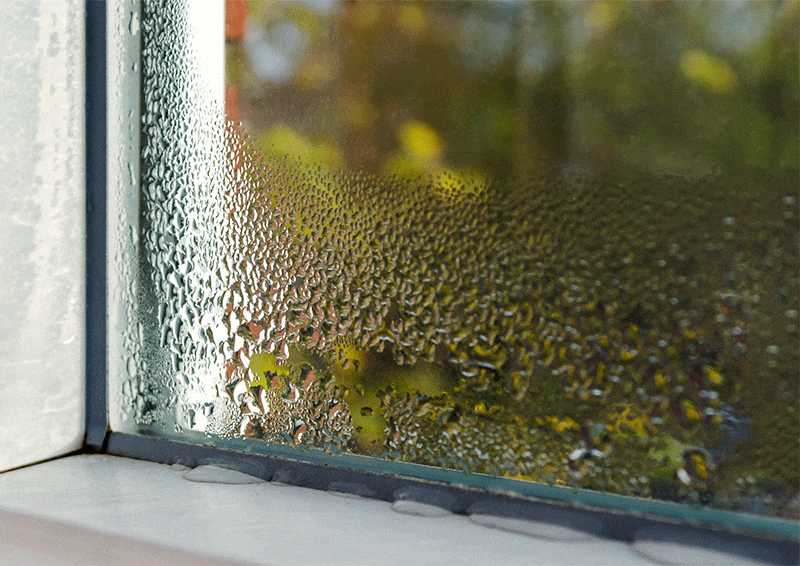How well did you sleep last night? Did you wake up feeling rested and refreshed, or did you struggle to get a good night’s rest?
If you struggle to get a good night’s sleep, you’re not alone. Millions of people around the world struggle with sleep issues, and there are countless factors that can impact sleep quality. One often overlooked aspect is the quality of the air we breathe. Indoor air quality can significantly affect sleep quality and overall health, and it’s important to pay attention to this often-overlooked aspect of our living environment.
As we celebrate World Sleep Day, let’s take a closer look at how air quality affects our sleep and how we can improve it. Below, we will explore the link between air quality and sleep quality, offer tips for improving indoor air quality, and provide other tips for better sleep.
The Link Between IAQ and Sleep Quality
Poor indoor air quality can lead to breathing problems, allergies, and other health issues that interfere with sleep quality.
Allergens in the Air
Allergens such as dust, pollen, and pet dander can accumulate in indoor air, making breathing difficult and resulting in poor sleep quality. When inhaled, allergens can cause congestion, sneezing, and itchy eyes, disrupting sleep. Allergy-related disorders are increasingly prevalent problems that have detrimental effects on quality of life (QOL), sleep, and subsequent daytime functioning—affecting up to 40 million Americans and approximately 10% to 25% of the population worldwide.
Volatile Organic Compounds (VOCs)
VOCs are chemicals found in many household products and building materials. Exposure to high VOC levels can cause headaches, nausea, and other health issues that can interfere with sleep quality. VOCs are commonly found in products such as cleaning supplies, air fresheners, and paints. A study published in Indoor Air found that reducing VOC levels in indoor air improved sleep quality.
Humidity Levels
Humidity levels can also impact sleep quality. The quantity of water vapour present in the atmosphere correlates with temperature, as warmer air has a greater capacity to retain moisture than cooler air. High humidity can cause discomfort and make it difficult to breathe, while low humidity can cause dryness in the throat and nasal passages.
Maintaining a 30-50% humidity level can promote comfortable breathing and improve sleep quality.
Temperature
Temperature can have a significant impact on sleep quality. A room that is too hot or too cold can make it difficult to fall asleep and stay asleep. The National Sleep Foundation recommends keeping your bedroom temperature for sleep around approximately 65 degrees Fahrenheit (18.3 degrees Celsius). This may vary by a few degrees from person to person. Still, most doctors recommend keeping the thermostat set between 60 to 67 degrees Fahrenheit (15.6 to 19.4 degrees Celsius) for the most comfortable sleep.
How to Improve IAQ for Better Sleep Quality
Improving indoor air quality can enhance the quality of sleep and overall health. Here are some tips for improving IAQ in your home.
Regular Cleaning
Regularly cleaning and vacuuming your home can reduce the amount of dust, pollen, and other allergens in the air. Be sure to clean carpets, rugs, and upholstery, as these can trap allergens.
Air Purifiers
Investing in an air purifier can help remove airborne allergens and pollutants from indoor air. HEPA filters can remove up to 99.97% of particles from the air, making them an effective way to improve indoor air quality.
Natural Cleaning Products
Using natural cleaning products can reduce exposure to harsh chemicals and VOCs found in conventional cleaning supplies. Products such as vinegar, baking soda, and lemon juice can be effective cleaning agents without releasing harmful chemicals into the air.
Improve Ventilation
Improving ventilation in your home can reduce the concentration of indoor air pollutants. Proper ventilation can help to dilute and remove pollutants and moisture from indoor air. One way to improve ventilation is by using HVAC systems, which circulate fresh air throughout your home. However, it’s essential to regularly change your HVAC filters to prevent pollutants and allergens from accumulating in your home’s air.
Set a reminder to change your filters every three months or as recommended by the manufacturer. Additionally, consider upgrading to a higher quality filter, with a greater MERV rating, depending on the type of indoor setting.
Other Tips for Better Sleep Quality
Improving IAQ is just one way to improve sleep quality. Here are some other tips for getting a good night’s rest.
Keep Your Bedroom Cool and Dark
Maintaining a cool temperature and blocking out light can promote restful sleep. Set your thermostat to a comfortable temperature, and use blackout curtains or a sleep mask to block out light.
Invest in a Comfortable Mattress and Pillow
Investing in a comfortable mattress and pillow can improve sleep quality by reducing discomfort and pressure points. Choose a mattress and pillow that provide adequate support and are comfortable for your sleeping position.
Establish a Consistent Sleep Schedule
Going to bed and waking up at the same time each day can help regulate your body’s internal clock and improve sleep quality. Aim for 7-9 hours of sleep each night.
Limit Screen Time Before Bed
Exposure to blue light emitted by electronic devices can disrupt the body’s natural sleep-wake cycle. Limit screen time before bed and avoid using electronic devices in the bedroom.
Clear Sinuses
Decongesting before sleep can improve sleep quality by making it easier to breathe through your nose. When your nasal passages are congested, you may be forced to breathe through your mouth, leading to snoring, dry mouth, and other issues that can interfere with sleep.
Clearing your nasal passages before bed can help ensure that you are breathing comfortably throughout the night. This can be especially important for people who suffer from allergies or other conditions that cause nasal congestion.
One way to decongest before sleep is to use a saline nasal spray or rinse. Saline can help moisten and clear the nasal passages, making breathing easier. Another option is to use a nasal decongestant, but it’s important to use these products as directed and only for a short period, as overuse can lead to rebound congestion.
Improving indoor air quality can improve sleep quality and overall health. By reducing indoor allergens, VOCs and maintaining proper humidity levels, you can create a comfortable and healthy sleeping environment. Additionally, following tips for better sleep, such as establishing a consistent sleep schedule and limiting screen time, can further improve sleep quality. On this World Sleep Day, prioritize your sleep and take steps to improve your indoor air quality for a good night’s rest.


